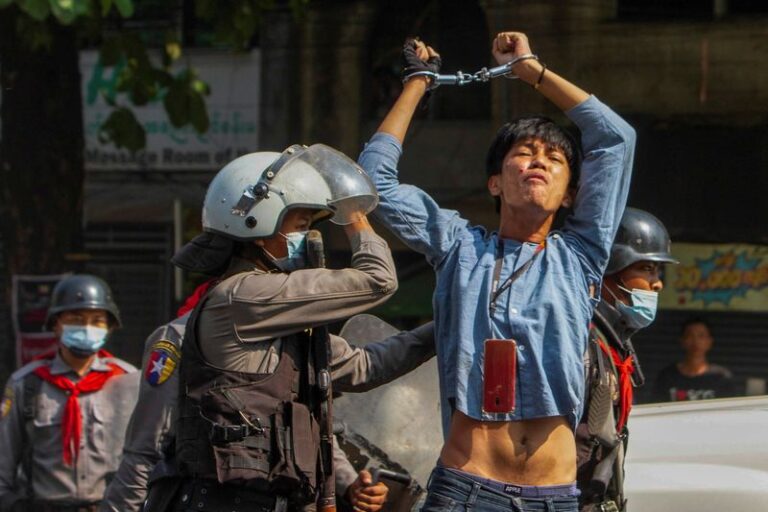
(Reuters) – Myanmar police moved decisively on Saturday in a bid to prevent opponents of military rule gathering throughout the country after Myanmar’s U.N. envoy urged the United Nations to use “any means necessary” to stop a Feb. 1 coup.
The Southeast Asian country has been in turmoil since the army seized power and detained elected leader Aung San Suu Kyi and much of her party leadership, alleging fraud in a November election her party had won in a landslide.
Uncertainty has grown over Suu Kyi’s whereabouts, as the independent Myanmar Now website on Friday quoted officials of her National League for Democracy (NLD) party as saying she had been moved this week from house arrest to an undisclosed location.
The coup has brought hundreds of thousands of protesters to Myanmar’s streets and drawn condemnation from Western countries, with some imposing limited sanctions.
Police were out in force early in the main city of Yangon and elsewhere, deployed at usual protest sites and detaining people as they congregated, witnesses said. Several media workers were detained.
But people still gathered, some for a march by ethnic minorities in Yangon, their numbers building through the day.
Crowds chanted and sang, then melted into side streets as police advanced, firing tear gas, setting off stun grenades and firing guns into the air, witnesses said.
Similar scenes played out in the second city of Mandalay, and several other towns including Dawei in the south, witnesses and media reported.
A protester in the central town of Monwya said police had fired water cannon as they surrounded a crowd.
“They’ve blocked all the ways out,” Aye Aye Tint told Reuters from the town. “They used water cannon against peaceful protesters, they shouldn’t treat people like that.”
Junta leader General Min Aung Hlaing has said authorities were using minimal force. Nevertheless, at least three protesters have died. The army says a policeman was also killed.






